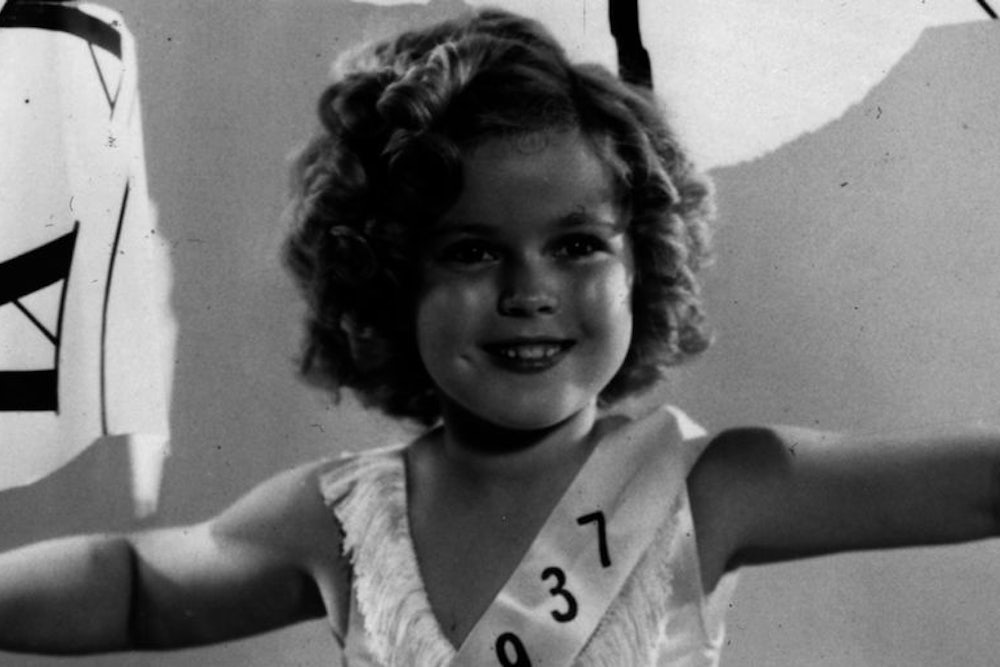TNR Film Classics: ‘That Hagen Girl’
November 10, 1947
Shirley Temple must present a formidable problem to the artists and businessmen of Hollywood. She is the final perfect product of their cosmic system. In other performers you may find star and artist and human being mixed; Miss Temple is pure star.
On the basis of her own resources, there is no reason why Miss Temple should have been distilled to this crystalline purity. She has a face and figure which, while so usual as to seem an American composite, are undeniably pretty; she seems alert and good-natured; she learned early, Lord knows, to go through her paces with professional facility and attention to detail. There is no evidence that she has unusual ability, but she should be able to carry out simple roles with enough conviction to be a reliable craftsman.
The trouble is that she is part of a maudlin folklore. Her face on the screen seems twice normal size, so often has it been thrust on us from billboards and magazines and theater marquees. Her simplest gestures recall the monstrous precocity with which she was made to skip and preen through films of a decade or more ago. She was long since abducted from her rightful guardians and made the child of a particularly bad mass dream, and there is little she or they can do about it at this date. Thus, you get such films as That Hagen Girl.
Charmed circle. The most painful part of this very painful picture is the contrast it insists on between Miss Temple and the rest of the cast. There are no notable actors in the film and no promising roles, but the supporting players are at least permitted to essay some characterization, to express some credible emotions. They build up their secondary personalities according to their abilities, but they do so at a respectful distance from their star. It is possible, even, to embrace her without overstepping that circle except in the necessary physical sense.
She, meanwhile, goes through a repertory. “Smile, Miss Temple; weep, Miss Temple.” “You are amused. Miss Temple; you are indignant; you are grateful; you are miserable; you are, in fact, about to throw yourself into the river.” There is a school play within a play in this picture: Romeo and Juliet. The opportunity for burlesque has not been overlooked, and the boys and girls play Shakespeare with high-school ineptness. Miss Temple is Juliet—a doll Juliet for a corner cupboard. This is enchantment of a most unhappy kind, and Hollywood shows no likelihood of stumbling on the magic word to free its princess.
The sociologically minded may be interested to know that the sorrows of Miss Temple in this instance are caused by a widespread belief in the town of Jordan that she is the illegitimate offspring of the town’s heiress and its most attractive bachelor. The libel could have been scotched at any time by the worthy couple who adopted her, but the only way thewriters have seen out of the impasse is to have her marry her putative father. Miss Temple has been involved here in a situation with unhealthy overtones.
